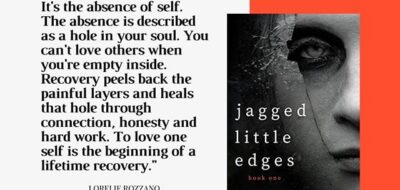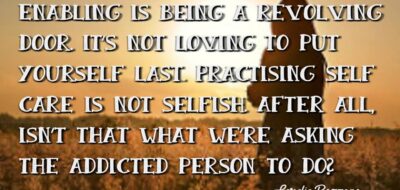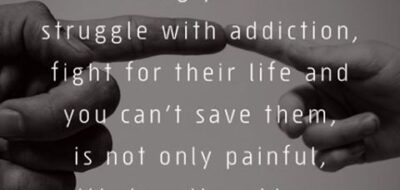The number one rule in any family struggling with addiction is don’t rock the boat! We tend to coddle the addicted person. And we certainly don’t want to upset them either. (Of course the family feels upset most of the time but they learn to ignore their emotional state)
So why would families do this? Because all hell will break loose if they don’t! In essence, families are trained to enable their addicted loved one.
Below are 7 signs that you’re being trained to enable your addicted loved one;
1) You feel ‘beat up’ after talking to your addicted loved one. Conversations with the addicted person are difficult. They leave you feeling wounded, emotionally bruised and sick to your stomach. Although you may not be aware of it, you are suffering from emotional abuse.
2) You question your sanity. You feel crazy. You find it difficult to focus. Your thoughts are racy and alarming. You question your every thought and second guess yourself. You wonder if you should go on medication, but feel too embarrassed to discuss it with a friend or your Doctor.
3) You feel guilty. Every wrong thing that is happening in the life of your addicted loved one, is your fault. You don’t tell anyone this. Logically, you know it’s not true. You aren’t the one shoving drugs up their nose, but deep down inside of you, you believe it any-ways. You get relief from saying yes, when no, is the right answer. You have an exclusive relationship with your addict. They don’t tell on you for saying yes, and you don’t tell on them for asking.
4) You feel overly responsible. Control becomes an issue. You want to know who they’re with, and what they’re doing, at all times. You check through their drawers, pants pockets, cell phones and wallets. You might even drive by the places they claim to be, to see if they’re really there. By now you’ve become their banker, manager, lawyer, counselor and cop. Your well being is dependent on the addicts behavior. If they’re having a good day, then you are too. If they’re having a bad day, you make it your job to fix it.
5) You walk on egg shells. You sugar coat your words. You don’t say what’s on your mind, instead you hint at it. You’re hypersensitive to the addicts every mood and need. You choose your actions accordingly. You feel like you are walking on glass and one wrong move, could crack it all open. You’re afraid of saying the wrong thing. Stress is a constant companion. Physically you may suffer from headaches, insomnia, weight gain, or loss, jaw pain, high blood pressure, heart disease, depression and exhaustion.
6) You make excuses for and tolerate, abusive behaviour. Your friends and family tell you – you’re being used. They plead with you to set boundaries and say no. You make excuses for your loved ones behaviour. ‘They’re stressed out. They’re sick. They have an illness. He/she didn’t really mean to say that. They only borrowed the money, they weren’t stealing it. You just don’t understand them like I do. If you were a better parent/sibling/friend, maybe they wouldn’t have turned out like this.’ You protect the addict’s unhealthy behaviour and normalize verbal, emotional, mental and physical, abuse. You may even display the same behaviour, when being confronted on enabling.
7) You lower your moral standards to stay in the relationship. At one point in your life, you wouldn’t put up with the behaviour you’re putting up with today. You’ve made threats to leave, or kick the addicted person out of your home. You lay down a bottom line – If you ever do … again, I will… The addict crosses the line – and you move it. Instead of doing what you said you would do, you give them another chance. Just one more time becomes your motto. You’ve lost count of the chances you’ve given before this. You lock up your purse, car keys, medication and wallet. You hide the booze. Your home has become a fortress.
Addiction is an irrational and illogical illness for both the addict and their family members. No one sets out to live like this. It builds over time. Just as the frog in the pot gets used to the boiling water, so does the addicted person’s family get used to their abusive behaviours.
If you’re tired of waiting for the addict to change, there’s good news. You don’t have to wait any longer. The addict isn’t the only one who needs help. The family does too. The best chances your addicted loved one has of a successful recovery, is you. Learn what role you play in their addiction. Don’t ask them to do, what you won’t. Rather than waiting for the impaired thinker to see the light – be the light, and lead the way. Statistics show, addicted individuals have a far greater chance of succeeding, when their family is educated, and in recovery also.
Lorelie Rozzano
www.jaggedlittleedges.com
If you or someone you know needs help, please call this confidential support line for assistance. 1 888 614-2379.







Cindy B
This could never be more true! Every single one of these I lived through until my son was sent to rehab for 4 months. He is home and I am still enabling him and just waiting for relapse! I tell myself to stop the enabling, but then reason that he is clean. Not a valid reason. I need strength to stop and make him take responsibility for ALL of his life. So glad I have found this website!